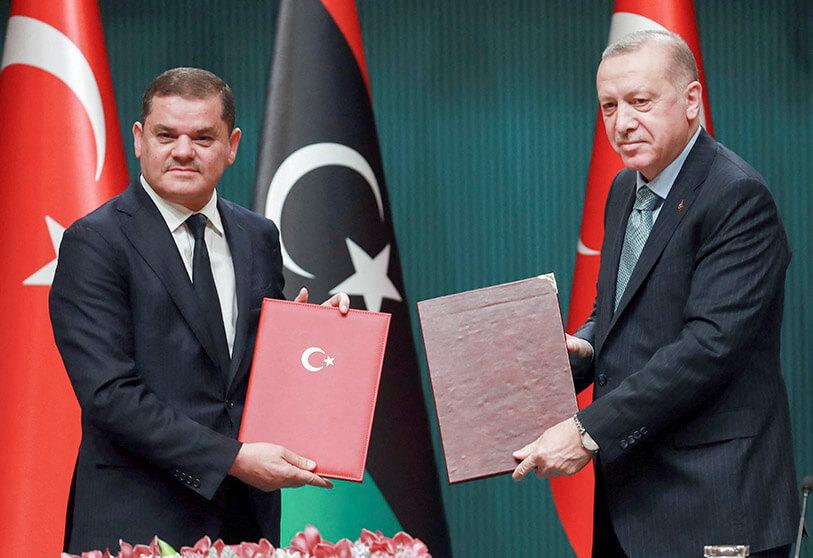The Court of Appeal in Tripoli has decreed on Tuesday the temporary suspension of the controversial memorandum of understanding for the exploration of hydrocarbons in the Mediterranean that the Libyan Government of National Unity (GNU) signed with Turkey last October.
The ruling comes in response to a lawsuit by three lawyers challenging the “legality” of the agreement, which has also been rejected by Greece, Egypt and Cyprus as infringing on their economic rights in an area with significant gas fields.
Opponents of the memorandum also argue that Prime Minister Abdul Hamid Dbeibé’s GUN does not have the power to approve such strategic agreements, as it is a transitional government whose mandate expired almost a year ago.
The end of Dbeibé’s term in office, which he is betting will keep him in power until elections are held, led the Parliament, located in the eastern city of Tobruk, to appoint a parallel government to the one in Tripoli, led by Fathi Bashagha, which returned the country to political deadlock.
Turkey already signed a memorandum with the previous Tripoli consensus executive on maritime demarcation in 2019, which was met with the same rejection by the country’s Mediterranean neighbours.
For the EU, the 2019 agreement, on which the recently approved memoranda are based, “violates the sovereign rights of third states, does not comply with the Law of the Sea and cannot produce any legal consequences for third states”.
The GNU Minister of Oil and Gas, Mohammed Oun, this week expressed his desire to “find friendly solutions” with Greece, Egypt and Cyprus on “the demarcation of maritime borders” and assured that geological studies prove the existence of reserves in Libyan economic waters.
On 3 October, Turkish Foreign Minister Mevlüt Çavusoglu signed several memoranda of understanding (MoUs) in Tripoli on security, oil and gas, and media.
Bashagha, the parliament’s Energy Committee and members of the High State Council, the second legislative body, considered the agreement illegal and an ‘attempt to impose a fait accompli’.
The EU urged Turkey and Libya to avoid undermining regional stability in the face of complex disputes over maritime boundaries in the Mediterranean.

